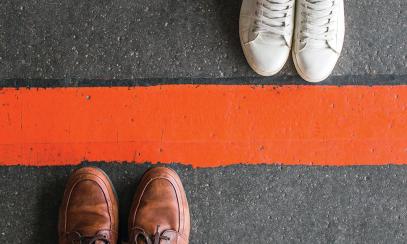
Living in Difficult Times
Dear Cathie, I struggle with anxiety and have difficulty staying focused on present day tasks. It seems I can think about things to the point I am having a panic attack. Any suggestions?
Dear Cathie, I struggle with anxiety and have difficulty staying focused on present day tasks. It seems I can think about things to the point I am having a panic attack. Any suggestions?
We are living in difficult times, and you are not alone. Anxiety is the most common mental disorder, affecting 40 million adults in the U.S. population, according to the Anxiety and Depression Association of America. What changed? Well, unfortunately, no one seems to have an exact answer as to why anxiety is so common today. Contributing factors such as social media, poor sleep habits, and COVID have created a climate that has had a negative impact on many adults. The age group of 30 to 44 has the highest rate of anxiety, with around 23 percent of people reporting an anxiety disorder within the past year. Some individuals choose to take anxiety-reducing medication under the care of their doctor, and some choose to seek counseling where they can learn to change behavior and think differently about the situation. There are solutions that don’t involve medication. A therapy modality that has been successful in reducing anxiety is Dialectical Behavior Therapy (DBT). DBT focuses on mindfulness and training your brain to stay in the present moment as opposed to reliving the past or agonizing over the future. Since anxiety can be a natural part of the human condition, it may not be completely curable, but it is manageable. Here are two exercises that can help with refocusing your mind on the present moment.
Mindful observation
- Choose an object from within your immediate environment and focus on it. Watch it for a minute or two.
- Don’t do anything except notice the thing at which you are looking.
- Look at this object as though you are seeing it for the first time.
- Listen to the sounds around you.
- Watch your breathing: in and out.
- You can also sit quietly and watch what passes in front of your direct line of sight, without turning your head or labeling what you see.
When you practice these mindfulness skills, you develop your observation muscles. The important thing is to observe without judgement and focus only on the facts and the present moment. Don’t label what you are observing.
3-3-3 rule
- Look around you and name three things you see.
- Then, name three sounds you hear.
- Finally, move three parts of your body — your ankle, fingers, and arm.
Most people can reduce or eliminate their feelings of anxiety. The skills mentioned take practice and time to develop. Just like any sport or hobby, there is time involved and a learning curve before you become a pro. Don’t give up.
And finally, prayer is a beautiful way to reduce our anxiety. Our faith provides us with many outlets and opportunities to get closer to God and rest our cares in Him. If you are not comfortable talking to a professional counselor, talk to your priest or deacon.
“Do not worry over things that generate preoccupation and anxiety. One thing only is necessary: to lift up your spirit and love God.” — St. Padre Pio
Cathie McDaniel is the director of Catholic Family Services in Huntsville. She has a master’s degree in clinical counseling from Franciscan University in Steubenville, Ohio, and is a licensed professional counselor in the state of Alabama.



